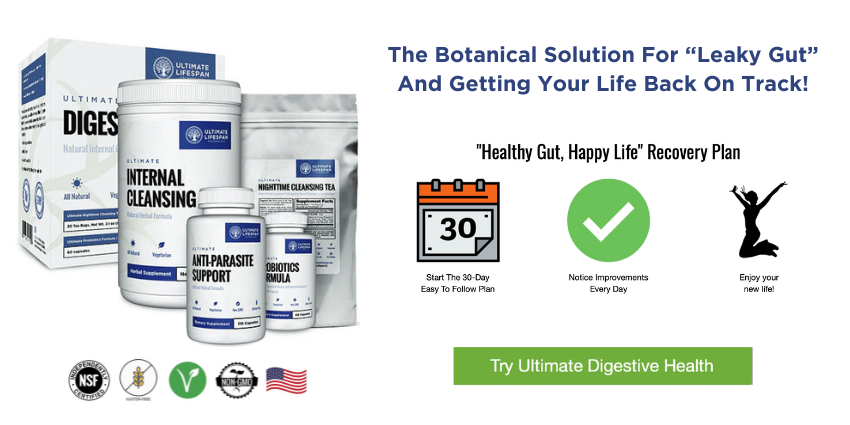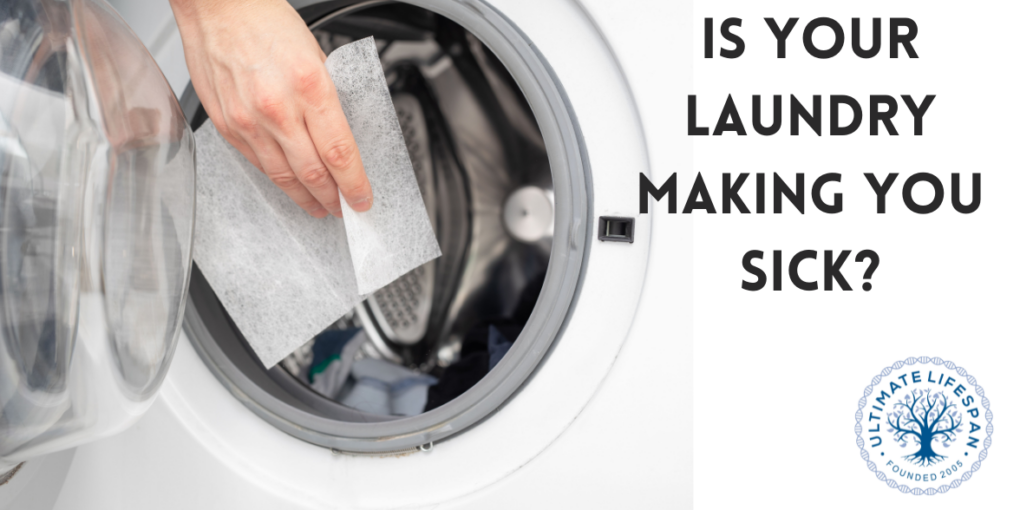The Hidden Hazards of Dryer Sheets: Unveiling the Toxic Truth
Did you know that the quest for that “fresh mountain air” scent in your fabrics could be introducing a cocktail of harmful chemicals into your home? It's an unsettling thought, but dryer sheets, those seemingly innocuous, fragrant thin squares used in laundry routines, could be more foe than friend. Beyond their promise of soft, static-free clothes lies a less-known narrative about their potential dangers, from carcinogens to hormone disruptors.
This post dives into the less talked about side of dryer sheets, shedding light on the toxic burden they might be adding to your household and your health, and offering safer alternatives for those irresistibly soft and fresh-smelling clothes.
This was the first product that I eliminated when I started on my quest to help my firstborn with his baby eczema.
The Chemical Concoction in Your Laundry Room
Dryer sheets are laced with a variety of chemicals to soften fabrics and add fragrance. Among these, some have been identified as carcinogens and hormone disruptors. The warm, enclosed environment of a dryer allows these substances to embed in clothing and become air pollutants as they are vented outside, contributing to a broader environmental issue.
Carcinogenic Concerns: Certain chemicals, such as benzene and acetaldehyde, found in dryer sheets have been linked to cancer. Research suggests that exposure to these substances, even at low levels, could pose long-term health risks.
Hormonal Havoc: Many dryer sheets contain phthalates, known for their hormone-disrupting abilities. These chemicals can mimic human hormones, leading to imbalances and serious health issues, including weight gain.
VOCs: These compounds can evaporate at room temperature, polluting indoor air and contributing to a range of health problems from headaches to respiratory issues. Those dryer sheets keep poisoning your home environment long after your laundry is done.
Synthetic Scents: The artificial fragrances that give dryer sheets their “appealing” scent are made from a mix of chemicals. These synthetic scents can trigger migraines, skin issues, allergies, asthma, and other respiratory conditions.
Beyond the Fragrance: Health Impacts and Environmental Concerns
The use of dryer sheets extends its impact beyond just our clothing. As these chemicals become airborne or are absorbed through the skin, they can trigger or exacerbate various health conditions.
Respiratory Reactions: For individuals with asthma or other respiratory conditions, the airborne chemicals from dryer sheets can aggravate symptoms, leading to increased discomfort and health risks.
Skin Sensitivities: The residues left on clothing can irritate the skin for weeks, especially in babies and those with sensitive skin, leading to rashes and allergic reactions.
Detox Dilemma: Our bodies are equipped with complex systems to detoxify and eliminate foreign substances. However, the constant exposure to the myriad chemicals in dryer sheets, as well as other countless chemicals in other products used daily, can overburden these systems, potentially leading to toxin accumulation and adverse health effects. We need to be aware of these hidden sources of toxins to minimize our total toxic load on the body contributing to a myriad of health conditions. These are the things we CAN control.
Environmental Emissions: The scent wafting through neighborhoods from dryer vents is more than just an olfactory marker; it signifies the release of chemicals into the environment, contributing to air pollution and potentially harming wildlife.
What Studies Show
In the quest to understand the potential hazards of dryer sheets, several pivotal studies have emerged, shedding light on the chemicals they release and their implications for health and environment. One such study, published in the Journal of Air Quality, Atmosphere & Health, investigated the volatile organic compounds (VOCs) emitted from dryer vents using popular brands of scented laundry detergent and dryer sheets. The findings were eye-opening, revealing that these emissions contained a myriad of hazardous chemicals, including known carcinogens.
Another critical piece of research from Environmental Health Perspectives focused on the endocrine-disrupting effects of certain chemicals commonly found in household products, including dryer sheets. This study underscored the potential for these chemicals to interfere with hormonal systems, raising concerns about long-term health implications, especially with regular, prolonged exposure.
Furthermore, research featured in Indoor Air delved into the impact of fragranced consumer products on indoor air quality. This study highlighted how products like dryer sheets contribute to indoor air pollution, exacerbating issues for individuals with respiratory conditions, allergies, or sensitivities.
These studies collectively paint a compelling picture of the need for caution and further inquiry into the use of dryer sheets and similar household products. They underscore the importance of being informed consumers, encouraging us to question the everyday products we often take for granted and to consider healthier, more sustainable alternatives for our homes and the environment.
Rethinking “Freshness”: Safer Alternatives for Your Laundry
There is nothing clean or fresh about artificially scented laundry. In fact, it is the definition of dirty. It is soiled with chemicals, which are way worse than your own body odor or dirt from that garden soil. It’s time we change the programming we’ve been fed from TV commercials for decades.
Recognizing the potential risks associated with dryer sheets prompts the quest for healthier, environmentally friendly alternatives:
– Wool Dryer Balls: A natural, reusable option that can reduce static and soften fabrics. Adding a few drops of essential oils can impart a pleasant, natural fragrance.
– Vinegar: A splash of vinegar in the rinse cycle can naturally soften fabrics without leaving a residue.
– DIY Dryer Sheets: Using old fabric squares with a few drops of essential oils and white vinegar can offer a customizable, reusable alternative.
– Air Drying: Whenever possible, air drying clothes not only eliminates the need for dryer sheets but also conserves energy. Plus it “irons” your laundry at the same time!
Embracing a Healthier Home Environment
The journey toward a toxin-free home involves scrutinizing everyday products, including those as seemingly harmless as dryer sheets. By choosing safer alternatives, we can reduce our chemical exposure and contribute to a healthier indoor environment and a more sustainable planet.
In embracing alternatives to dryer sheets, we're not just opting out of a commercial-induced trend; we're making a conscious choice for our health and the well-being of our planet. It's a small but significant step toward a cleaner, greener lifestyle, one laundry load at a time.
Save Your Dryer!
Beyond the health and environmental concerns, dryer sheets pose a less-known but significant risk to the very appliance they're used in: the dryer itself. The lubricating chemicals in dryer sheets are designed to soften fabric and reduce static, but they also leave behind a residue that can accumulate on the dryer's lint screen and interior surfaces. This filmy buildup can restrict airflow, leading to decreased efficiency and potentially forcing the dryer to work harder and longer to dry clothes.
Over time, this not only increases energy consumption but can also pose a fire hazard as the dryer's ventilation becomes clogged. Furthermore, the residue can coat the electronic sensors in the dryer, interfering with moisture detection and further compromising the appliance's functionality. This hidden cost of using dryer sheets—impacting the longevity of the dryer, home safety, and, most importantly, your health—adds another layer to the considerations we must weigh in our laundry routines.
Strengthen Your Body’s Natural Detoxification Naturally
Embarking on a colon cleanse using gentle medicinal herbs and fiber can significantly bolster the body's innate detoxification systems. These natural allies work in harmony to rejuvenate the digestive tract, enhancing the elimination of toxins, including those accumulated from products like dryer sheets. Medicinal herbs, renowned for their soothing and anti-inflammatory properties, support liver function and aid in the gentle removal of toxins from the body.
Fiber, on the other hand, acts as a natural broom, sweeping through the colon to facilitate the expulsion of waste and chemical residues. This synergistic approach not only aids in purging harmful substances but also strengthens the gut microbiome, laying a robust foundation for overall health and well-being. By nurturing the body's detox pathways, a colon cleanse with these natural elements can be a pivotal step in restoring balance and vitality, particularly in the face of modern-day environmental challenges.
Sources:
Rebecca Kessler. Dryer Vents: An Overlooked Source of Pollution. Environmental Health Perspectives Volume 119, Issue 11.
Anne C. Steinemann, Lisa G. Gallagher, Amy L. Davis & Ian C. MacGregor. Chemical emissions from residential dryer vents during use of fragranced laundry products. Air Quality, Atmosphere & Health, 19th of August, 2011. Volume 6.
Betty Bridges. Fragrance: emerging health and environmental concerns. Wiley Online Library. 16 April 2002



I am very,very upset and frustrated with industry manufactured carcinogens released into our breathing air and drinking water.